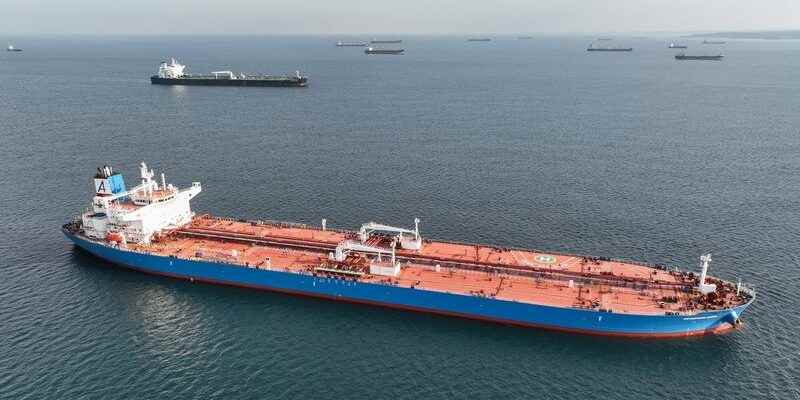ISTANBUL/BRUSSELS (Reuters) – Twenty-eight oil tankers were still waiting on Friday in the waters of the Black Sea and the Sea of Marmara to cross the Bosphorus and Dardanelles straits – which notably link Russian ports to international markets – while the international discussions are continuing to try to unblock the situation.
According to the maritime agency Tribeca, twenty tankers were waiting Friday morning to be able to cross the Bosphorus Strait – which connects the Black Sea to the Sea of Marmara – and eight others were waiting to be able to cross the Dardanelles Strait, which opens into the Aegean Sea.
Ankara on Thursday brushed aside foreign critics blaming it for the traffic jams, with Turkish maritime authorities saying they will continue to take the time to check that tankers have the required insurance documents before allowing them access to waters. Turkish.
Turkish maritime authorities earlier this month introduced new rules calling for additional guarantees from insurers in anticipation of Russian oil price caps.
They fear in particular that an oil spill resulting from a possible accident of an oil tanker violating international sanctions will not be eligible for compensation from the dedicated international fund or will not be covered by the insurance companies concerned.
The cap on the price of Russian oil was finally adopted last Saturday by the G7, the European Union (EU) and Australia, before coming into force on Monday.
Under this scheme, companies based in EU, G7 (Germany, Canada, US, France, Italy, Japan and UK) and Australia are now prohibited from providing services (trading, freight, insurance, shipowners, etc.) allowing the maritime transport of Russian oil to third countries if it is sold at a price above 60 dollars per barrel.
The situation around the Turkish straits “is not attributable to the G7 price cap on Russian oil, since there is anyway a 45-day liquidation period for Russian crude oil transported by sea purchased before the December 5,” a spokesman for the European Commission told Reuters on Friday in an emailed comment.
During this phase-down and transition period, companies can still provide services enabling the maritime transport of Russian oil purchased before December 5, regardless of the purchase price.
According to the statements of the spokesman of the European executive, even this transition period, the Turkish authorities will be able to continue to check the insurance forms of tankers “exactly as before”.
“We are therefore in contact with the Turkish authorities to try to have clarifications and we are working to unblock the situation,” noted the EC spokesperson.
(Written by Daren Butler and Can Sezer, with input from Kate Abnett in Brussels; French version Myriam Rivet, edited by)
